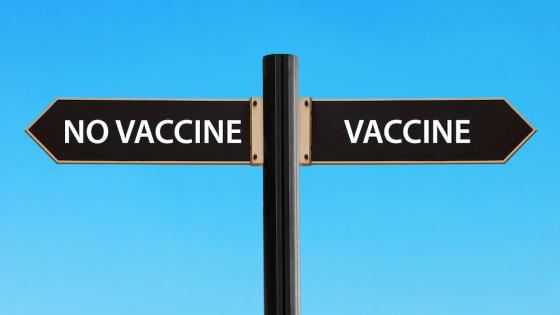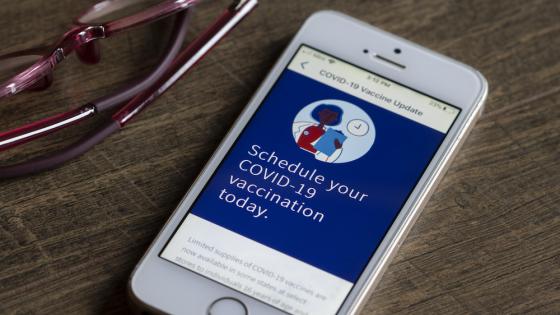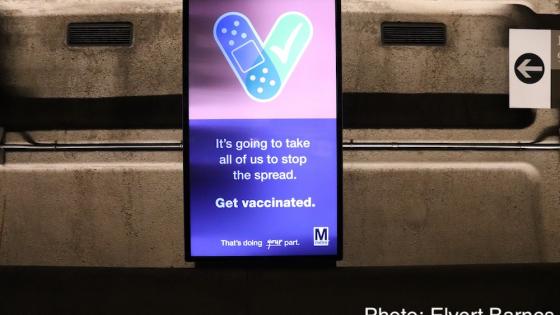Vaccination promotion is a crucial strategy towards achieving herd immunity against COVID-19 and ending the pandemic. Promotion measures include options ranging from simple information provision to legal mandates. However, some degree of self-selection is preferred because public health is guided by the least restrictive alternative, which states that in order to achieve a public good like herd immunity, we must select measures that place the least restrictions on individual freedom and rights (Giubilini 2021).
Some COVID-19 vaccines are based on new technology and processes, so there have been some uncertainties surrounding them. In general, at the stage of vaccine approval, some elements of vaccine efficacy are clarified through randomised controlled trials. Other elements of vaccine efficacy/effectiveness are newly clarified through investigations using field data after the approval. In the case of COVID-19 vaccines, their efficacy in preventing disease onset was confirmed first, followed by the efficacy/effectiveness in preventing infection and severe disease. However, the appearance of mutant strains may change the type and degree of vaccine efficacy/effectiveness (Tregoning et al. 2021). Thus, it is important to respect people’s autonomy in the decision making of COVID-19 vaccination with some uncertainties.
Behavioural economics defines a nudge as “an aspect of choice architecture that alters people’s behaviour in a predictable way without forbidding any options or significantly changing their economic incentives” (Thaler and Sunstein 2008), and it will be relevant in this setting. Nudges have been used for promoting COVID-19 social distancing (Lunn et al. 2020, Sasaki et al. 2021a).
In a recent study (Sasaki et al. 2021b), we experimentally examined whether nudges based on information about others strengthen the intentions of Japanese people to receive the COVID-19 vaccine. This study contrasted older adults, who are the target of priority vaccination in many countries, with young adults, who will be eligible for vaccination later. The unique aspect of this study is that we used three messages which differently describe one’s own and others’ decisions, and compared their effects on people’s vaccination intentions, autonomous decision-making, and emotional response.
Research has shown that some nudges could impede autonomy, evoke negative emotions, and potentially force people to make choices they may not wish to make (Allcott and Kessler 2019, Thunström 2019). Such interventions could promote the desired cooperative behaviour in the short term; however, they could also reduce cooperative behaviours in the present and those in the long term (Damgaard and Gravert 2018, Nafziger 2020). Even if those interventions can promote vaccinations at present, they may decrease the levels of other infection control measures and future vaccination. Thus, our study explored nudges that promote COVID-19 vaccination while simultaneously considering people’s autonomous decision-making and emotional response.
In March 2021, we conducted a pre-registered online experiment with 1,595 Japanese respondents. They were randomly assigned to one of the four groups. In addition to the explanation on the vaccine’s efficacy and adverse reactions in the control, the three treatment groups viewed either a comparison nudge (“X of 10 people in your age group answered they would receive this vaccine”), an influence-gain nudge (“Your vaccination uptake can encourage the vaccination uptake of the people around you”), or an influence-loss nudge (“If you do not receive the vaccine, the people around you may also not do so”). Our primary outcomes included one variable indicating whether or not respondents will receive the COVID-19 vaccine when offered free of charge (free-vaccine), and another variable indicating their willingness to pay (WTP) for it .We also used secondary outcomes to examine whether adding nudge-based messages inhibited respondents’ autonomous decision-making and generated negative emotions compared to the common explanations in the control group.
Figure 1 Message effects on vaccination intentions
Source: Sasaki et al. (2021b).
Estimation results suggested that the messages had the following effects: 1) The influence-gain nudge increased the proportion of older adults who will receive the vaccine if it is offered for free. 2) The vaccination intentions of older adults who already intended to receive it were further strengthened by the influence-loss nudge; however, this message placed an emotional burden on viewers. Further analysis showed that the comparison nudge had a similar promoting impact as the loss-framed message, while this message possibly worked to further weaken the intentions of those who did not intend to receive the free vaccine. 3) These messages did not have any promoting effect on young adults with lower vaccination intentions at baseline.
Our findings suggested that governments should use different messages depending on specific purposes and targets. The influence-gain nudge is effective for increasing the number of older adults who newly decide to receive the vaccine. One option is to include this message on public posters and websites. The comparison nudge is effective for reinforcing the intentions of older adults who already intended to receive the vaccine, ensuring their vaccination is carried out. Regarding social wellbeing, governments should use the comparison nudge instead of the influence-loss nudge, which has a similar promoting effect but increases the emotional burden on the viewers. However, since the comparison nudge may further weaken the vaccination intentions of older adults with originally lower intentions, it is necessary to display this message only to those who wish to get vaccinated. One option is to include this message on the screen for online reservation of vaccination or in reminder e-mails.
Our message had some promoting effects for the older respondents, but not for the younger ones, on average. This difference may be due to various factors, including differences in the level of vaccination intention at baseline, the risk of severe disease, and the priorities in the actual vaccination program. Our further analysis showed that the influence-loss nudge increased the willingness to receive the free vaccine and WTP among young respondents who feel they are at high risk for severe disease, as do older respondents. Discovering effective messages for each sub-group and tailoring personalised messages is one strategy for this age group.
Of course, our study has the major limitation that our primary outcomes were intentions, not behaviours. The gap between intentions and behaviour has been reported in the vaccination context (Brewer et al. 2017). Its causes include supply-side factors, including vaccine shortages and procedural barriers, and demand-side factors, including forgetfulness and procrastination. On the other hand, this point does not deny that having a firm vaccination intention is necessary for vaccination implementation. Even if the barriers were removed, if people do not intend to receive the vaccine, they will not get vaccinated. Actually, intentions have positive correlations with behaviours (Webb and Sheeran 2006). The purpose of this study was to discover other-regarding nudges that can promote vaccinations while simultaneously considering the autonomy and emotional burden of viewers. We believe that using intentions to test effects was reasonable under this objective before testing effects with actions.
COVID-19 vaccination is still underway globally, and our findings can contribute to the improvement of the vaccination programmes. Furthermore, our findings will have implications for vaccination programmes during future pandemics.
References
Allcott, H and J B Kessler (2019), “The welfare effects of nudges: A case study of energy use social comparisons”, American Economic Journal: Applied Economics 11(1): 236–76.
Brewer, N T, G B Chapman, A J Rothman, J Leask, and A Kempe (2017), “Increasing vaccination: putting psychological science into action”, Psychological Science in the Public Interest 18(3): 149–207.
Damgaard, M T, and Gravert, C (2018), “The hidden costs of nudging: Experimental evidence from reminders in fundraising”, Journal of Public Economics 157: 15–26.
Giubilini, A (2021), “Vaccination ethics”, British Medical Bulletin 137(1): 4–12.
Lunn, P D, S Timmons, C A Belton, M Barjaková, H Julienne, and C Lavin (2020), “Motivating social distancing during the Covid-19 pandemic: An online experiment”, Social Science & Medicine 265: 113478.
Nafziger, J (2020), “Spillover effects of nudges”, Economics Letters 190: 109086.
Sasaki, S, H Kurokawa, and F Ohtake (2021a), “Effective but fragile? Responses to repeated nudge-based messages for preventing the spread of COVID-19 infection”, The Japanese Economic Review 72: 371–408.
Sasaki, S, T Saito, and F Ohtake (2021b), “Nudges for COVID-19 voluntary vaccination: How to explain peer information?” Social Science & Medicine 292: 114561.
Thaler, R H, C R Sunstein (2009), Nudge: Improving Decisions About Health, Wealth, and Happiness, Penguin.
Thunström, L (2019), “Welfare effects of nudges: The emotional tax of calorie menu labeling”, Judgment and Decision Making 14(1): 11.
Tregoning, J S, K E Flight, S L Higham, Z Wang, and B F Pierce (2021), “Progress of the COVID-19 vaccine effort: viruses, vaccines and variants versus efficacy, effectiveness and escape”, Nature Reviews Immunology, 1–11.
Webb, T L and P Sheeran (2006), “Does changing behavioral intentions engender behavior change? A meta-analysis of the experimental evidence”, Psychological Bulletin 132(2): 249-268.







